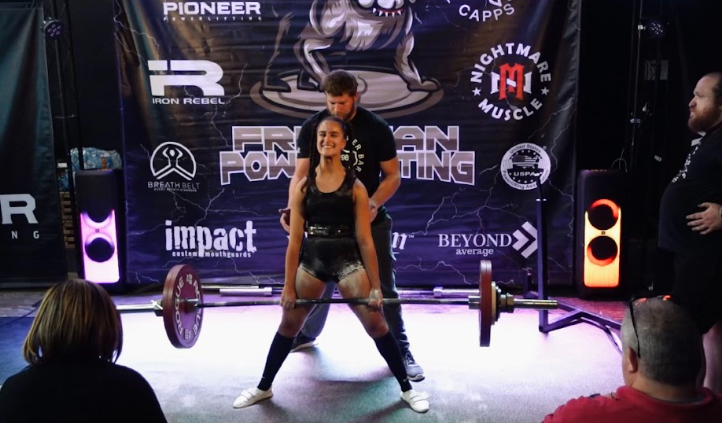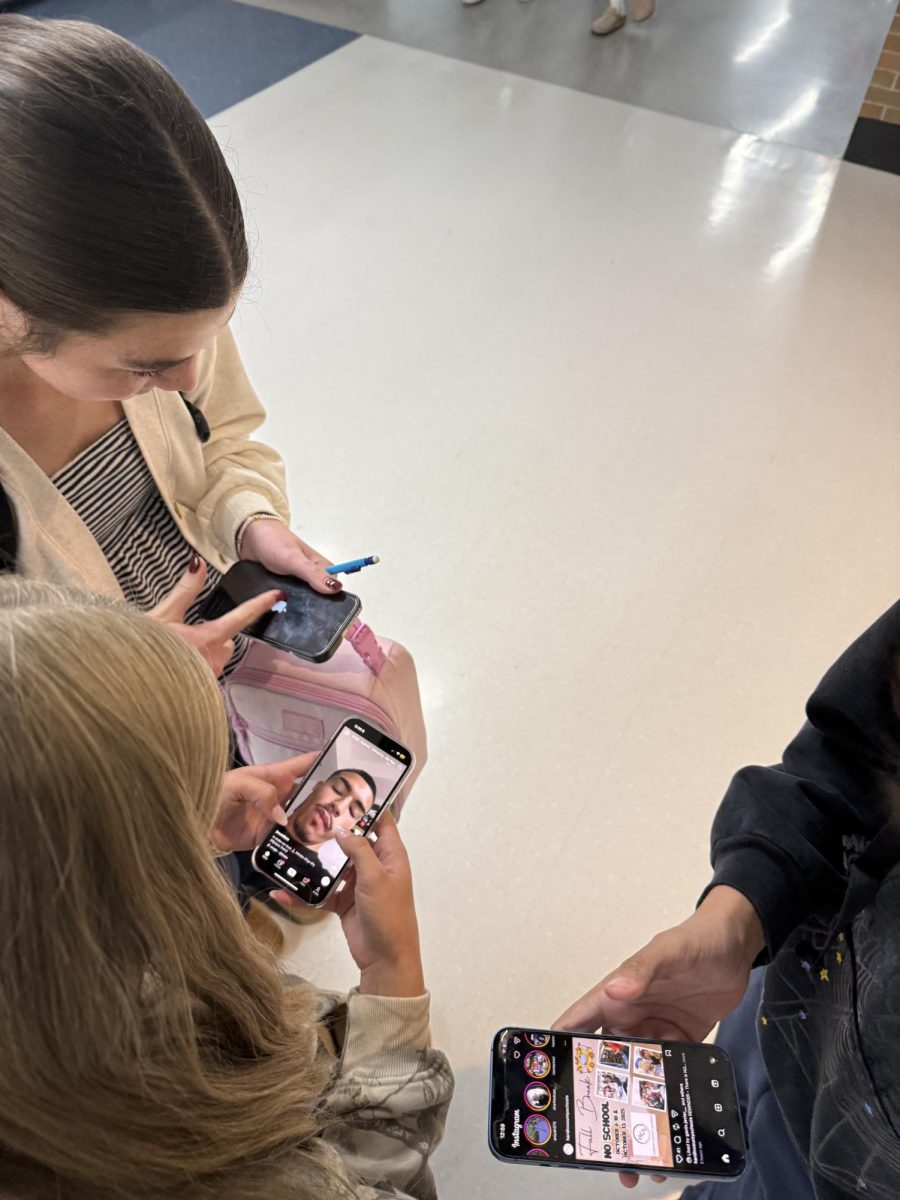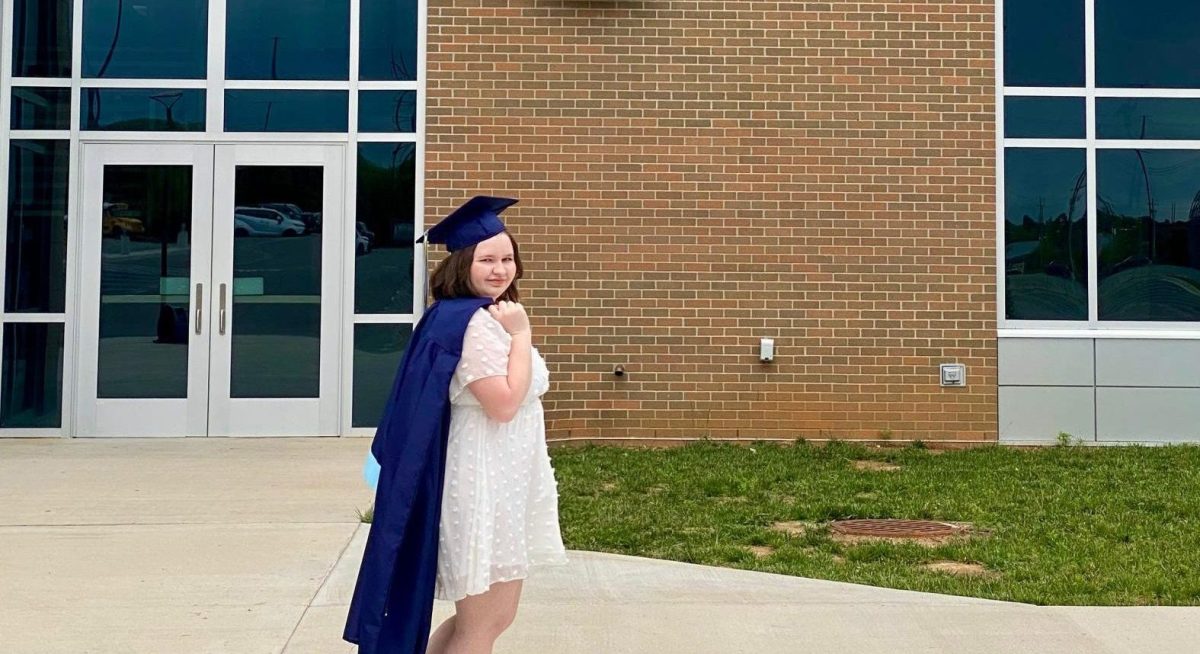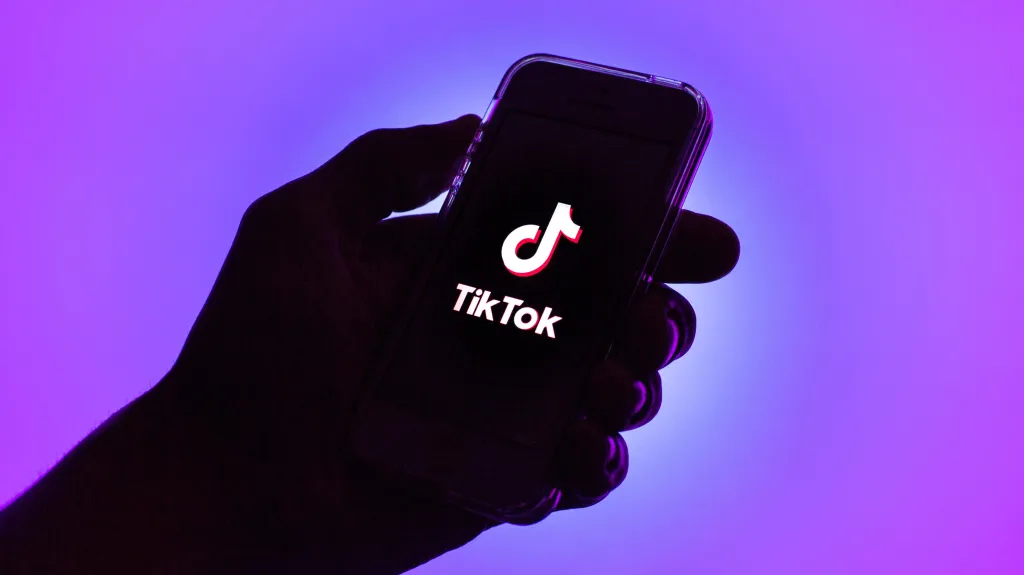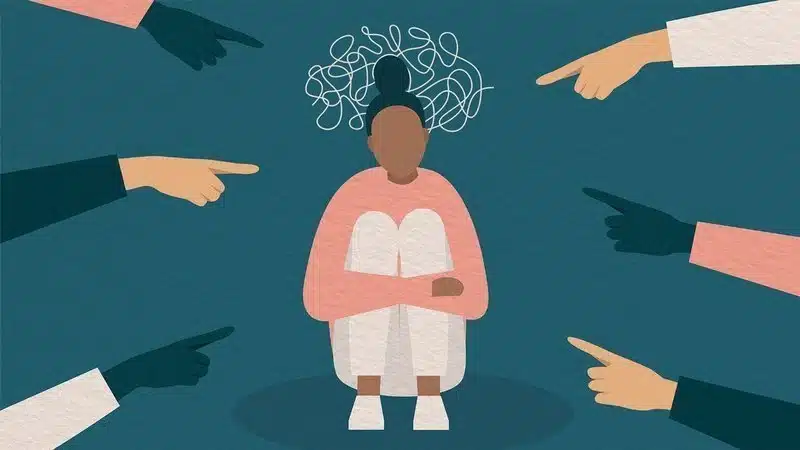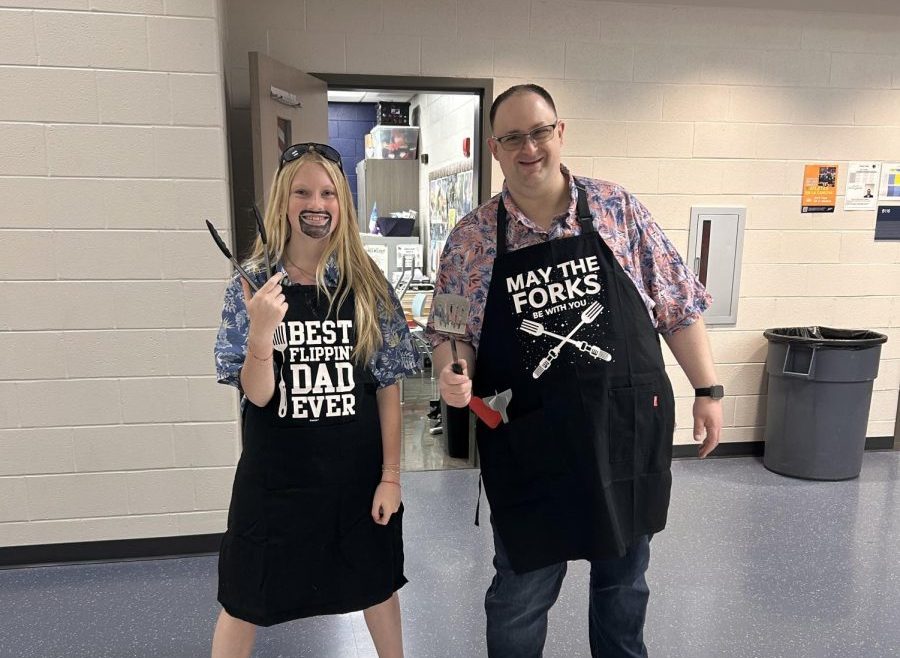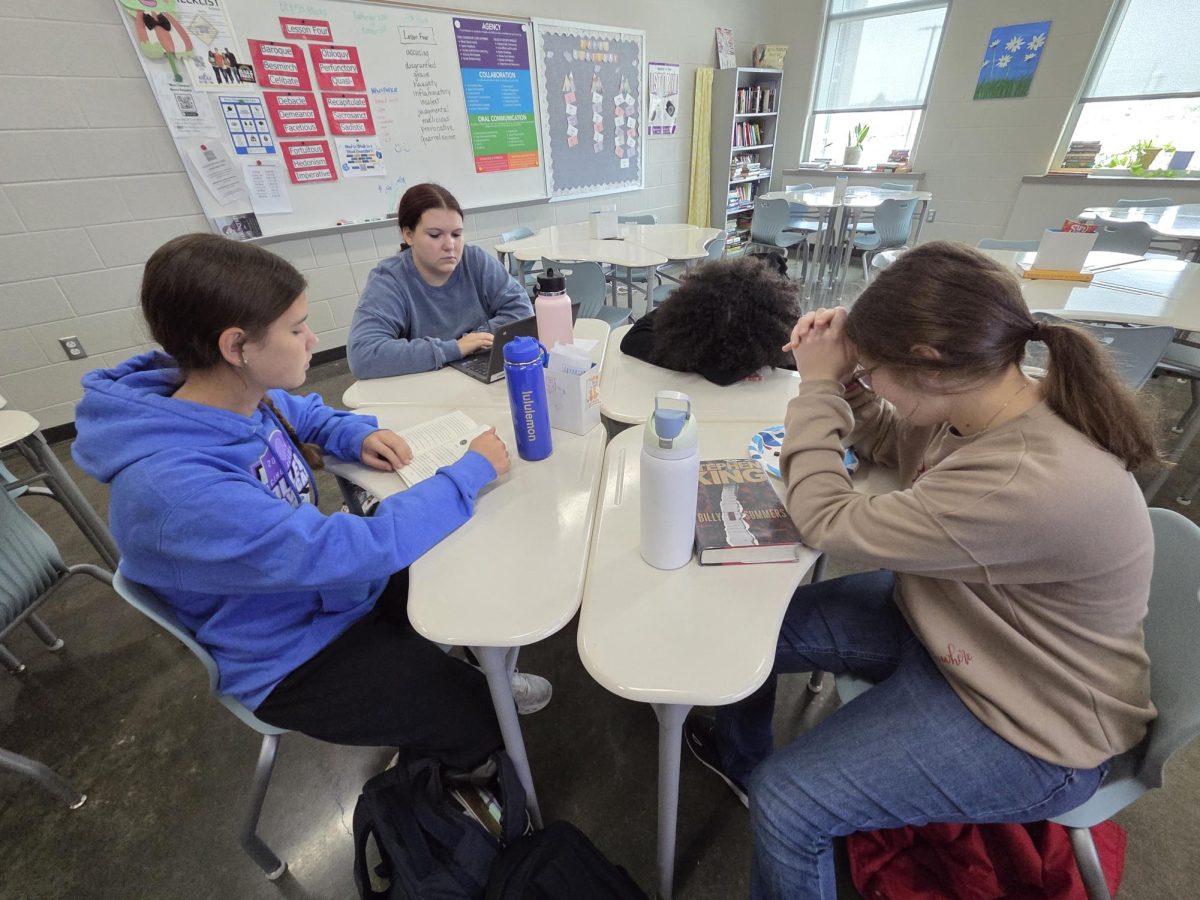Farrah Marreez, a junior, is one of the most self-assured, strong, and disciplined people at Central. Her biceps are just as big as her unbreakable self-image. However, her accomplishments have come about by healing from years of disliking her own body. Farrah Marreez’s self confidence has grown as a result of her hard work in the gym, and it’s been a long journey.
She started posting her workouts on TikTok the summer before sophomore year. Then, people started to view her as a “fit” person; she was a “workout girl,” the ideal of feminine beauty and ‘healthiness.’ And just as most teenage girls pine for the perfect body, she did too; for her that meant getting leaner.
“I wasn’t fat at all,” Marreez said, “but I seemed to think I was.”
She gradually ate less. She lifted regularly in the gym and would not fuel herself afterwards, causing her to get light-headed and dizzy.
“I would forget to eat,” she said, “and I was like wow, I look so good.”
Marreez’s shoulder veins began to show and her muscles popped out of the little body fat she had. She had finally made it. She got tons of validation from others about her lean appearance, but no one knew how hungry she felt.
She soon realized that this facade of herself was more than just disingenuous. It was an attempt to be something that no human can possibly manage. She was only eating one meal (if you would consider a piece of bland grilled chicken a meal) a day, and flaunting her resulting body as healthy. From then on, Marreez vowed to be more honest with herself about what “healthy” really meant.
“I realized that all I was doing was putting an unrealistic standard on other people. Why would I want to push something that’s not affecting me in a good way onto other people?”
One day, she stumbled across the sport of powerlifting on social media. She found out by chance that she was already able to beat the national squat record for a 15-year-old in her weight class. Only 14, she immediately signed up for a powerlifting competition.
The powerlifting community was refreshing to her, as the people viewed food as their source of strength, not something that ruins your thigh gap or gives you stomach fat. For example, other lifters will often offer carbs and candy as quick, easily digestible energy before a lift. In many fitness communities, carbs are somehow demonized.
With her newfound passion for powerlifting, she went on to break records in all three categories. Because of her performance, she had an elite total, allowing her to attend any national event. She aimed ambitiously with her goals being to break the national records in squat in deadlift. Then, her goals were obliterated.
“I planned to get the national 15-year-old deadlift and the 15-year-old squat, but then a week out from my competition, somebody else broke the record.”
She didn’t let this disappointment ruin the opportunity to compete nationally. In July at the USPA Powerlifting Nationals Competition in Las Vegas, she broke the state record in bench press and deadlift.
On Dec. 3, she competed in the USPA Kentucky State Championship in Louisville, breaking the bench press (148 lbs) and deadlift (313 lbs) state records yet again. Her next goal is to secure the state squat record and become a national record holder, which is only 30 lbs away.
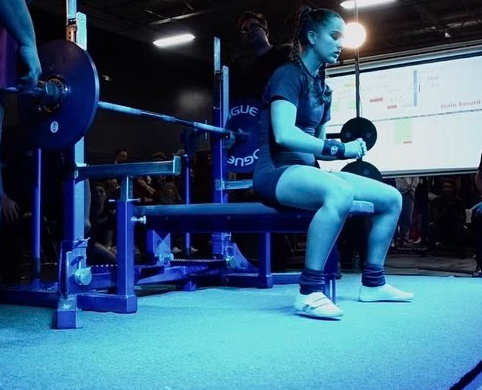
She recognizes that with nearly 10 thousand TikTok followers, many impressionable young girls, she has a responsibility to portray her fitness journey authentically. She is realistic in how she regulates her eating habits, which is one reason why she is now moving up a weight class.
Like anyone who gains substantial amounts of muscle, she is also gaining weight. It is no longer sustainable to stay at the same weight, because her diet would be so restrictive that she couldn’t participate in any events that involve food. According to Marreez, food is a cultural currency, not just a source of energy. She wants to be able to enjoy birthday parties, holiday celebrations, potlucks, and the like without having to pack her own dinner. Ultimately, this decision was not hard for her, because gaining weight will only make her stronger.
“Mass moves mass,” she says.
This new influx of following has also caused haters to flood her account. Some men that feel insecure because of Marreez’s strength have left nasty comments invalidating her lifts or calling her appearance manly. She, however, ignores their taunts.
“It’s the same thing every time,” she jokes. “They don’t get creative.”
Women carry more fat and less muscle naturally because that’s how bodies cope with childbirth. So, it makes sense that women wouldn’t actually get “bulky” or turn into The Rock after weightlifting. If a woman is carrying a rack of abs, they’re likely on steroids. Marreez continually reminds her audience that not everything on Instagram is true while ignoring people who thrive on hate. Many adolescent girls and boys have yet to realize that appearances can be deceiving, and Marreez is stopping this so that they do not have the same eating issues she once struggled with.
“People will lie to you for the likes, but you can’t lie to yourself.”

Above all, she wants her fellow fitness enthusiasts and female supporters to know that no one food is going to send you straight to intensive care. Starving yourself, however, can. A cookie is not bad. A cheeseburger is not bad. Habits and ways of thinking are what cause the odious side effects. “Fitness,” however you define that vague word, is not a tool to fix your broken body. It’s a lifestyle that starts with valuing your own wellbeing.
“How you look is not as important as how you feel.”

